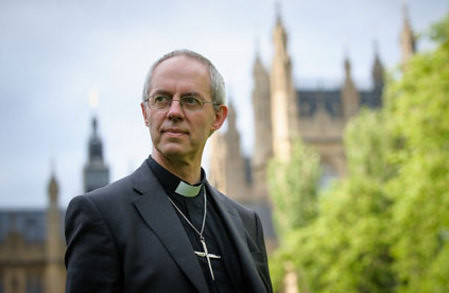
Observers in Rome may have found the process for the appointment of the new Archbishop of Canterbury rather strange. It is the Crown Nominations Commission which nominates two candidates to present to the Prime Minister, who then advises The Queen on the appointment. Her Majesty as Supreme Governor of The Church of England then gives her approval. This formal process has been preceded by several months of consultations, including lay and religious figures (of all faiths, including Catholics, not just Anglicans), the wider global Anglican Communion, and of course the members of Canterbury diocese itself.
In a sense, this process reflects the multiple role played by any Archbishop of Canterbury. He is the spiritual head of The Church of England. But he is also the global leader of the Anglican communion, representing 77 million people worldwide. He plays a public and constitutional role as the head of the Lords Spiritual in the House of Lords in Parliament. And he is often in demand from the UK-based and world media for comment on British and global public affairs, on issues from the impact of the economic crisis to the situation of Christians in Palestine. And he is one of the principal leaders of the Christian and world faith communities. Only last month, alongside Pope Benedict XVI and the Ecumenical Patriarch, Dr Williams welcomed in the Year of Faith on the steps of St Peter’s Basilica.
So an Archbishop of Canterbury requires many qualities. He must be a man of faith. But also a man of this world. The new Archbishop of Canterbury, The Right Reverend Justin Welby, currently Lord Bishop of Durham, will need all his experience as a former business manager, parish priest, cathedral Dean and diocesan Bishop in his new and difficult role. Bishop Welby is an expert in conflict resolution, and has particular knowledge of Africa, especially Nigeria. He has a CV that will serve him well in the years ahead.
This Embassy wishes him well. The relationship between the Anglican and Roman Catholic Churches is not our direct business. But that between the Holy See and Lambeth Palace, in all its complex manifestations, across the Catholic and Anglican global networks, certainly is. Together with the Archbishop of Canterbury’s own Rome-based representative to the Holy See (and Director of the Anglican Centre), Canon David Richardson, we look forward to helping Bishop Welby further the warm and productive relationship between Rome and Canterbury, itself an important element in the relationship between the United Kingdom and the Holy See, as he takes up his new role in the New Year.
